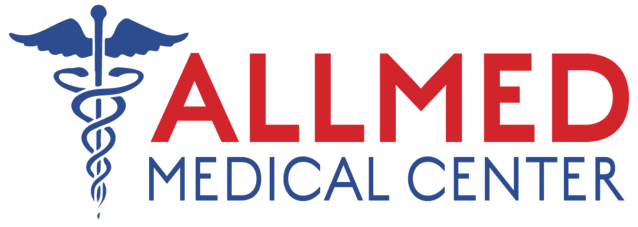Back to School Sport Physicals: Empowering Children's Participation and Well-Being

Approximately 46.5 million children and 7.7 million high-school students in the United States participate in organized sports yearly. As the number of individuals engaging in sports increases, the risk of sports-related injuries also rises. Children need to undergo sports physicals before participating in sports to prevent injuries. As the new school year approaches, children eagerly anticipate resuming their favorite sports and physical activities, which offer numerous benefits such as improved health, fitness, social skills, and self-esteem.
In this article, you will learn about the importance of sports physical exams, which are comprehensive medical check-ups evaluating your child's readiness and safety to engage in physical sports. You will also understand the components of sports physical exams, gaining insights into preventing injuries, managing chronic conditions, and enhancing your child's fitness. So, let's delve into the topic of back-to-school physicals.
What Is a Sports Physical Exam and Why Is It Important?
A sports physical exam, or a Preparticipation Physical Evaluation (PPE), is a medical assessment determining whether your child is physically able and safe to participate in a particular sport or activity. Most schools, camps, and organizations require a sports physical exam for enrollment in their sports programs. The primary purpose of a student sports physical is to safeguard your child's health and well-being during sports activities now that they are returning back to school. It can help:
- Detect any medical conditions or injuries affecting your child’s ability to play safely and effectively.
- Monitor your child's growth and development, ensuring it is appropriate for their age and chosen sport.
- Review your child's immunization records to ensure they are current with all required vaccines.
- Provide advice on improving your child's fitness, nutrition, hydration, and recovery.
- Educate your child and yourself on preventing common sports injuries and the following illnesses:
-Strains
-Sprains
-Fractures
-Concussions
-Heat exhaustion
6. Inquire about any concerns or questions you or your child have about sports.
Getting a sports physical exam can also empower your child to participate in sports with more confidence and enjoyment. Sports physical for kids help them set realistic goals, learn new skills, overcome challenges, and have fun with their peers.
Understanding the Components of a Sports Physical Exam
A sports physical exam consists of two essential components: a medical history questionnaire and a physical examination. Here's a breakdown of what each role entails:
1. Medical History Questionnaire: Gathering Essential Information
The medical history questionnaire is a critical aspect of the sports physical exam. It covers essential elements of your child's health and lifestyle, such as the following:
- Personal and family medical history: Past illnesses, injuries, surgeries, hospitalizations, allergies, and medications.
- Sports-related symptoms or issues: Chest pain, shortness of breath, dizziness, fainting, and other concerns related to physical activity.
- Lifestyle habits: Smoking, drinking, drug use, diet pills, and supplements.
- Menstrual cycle (for girls) or testicular pain (for boys): Relevant information for gender-specific considerations.
- The current level of physical activity: Evaluate your child's fitness level and how it aligns with their chosen sport.
The medical history questionnaire helps the doctor identify potential health issues or risks that might impact your child's participation in sports. This information also helps tailor the physical examination to address any specific concerns.
2. Physical Examination: Thorough Assessment of Body Functions
During the physical examination, the doctor comprehensively evaluates your child's body systems and functions, including:
- Height, weight, blood pressure, pulse, and BMI: Assessing overall health and growth.
- Vision and hearing tests: Ensuring optimal sensory capabilities for sports activities.
- Heart rate and rhythm: Checking for any abnormalities or murmurs.
- Lung examination: Listening for wheezes or crackles that could indicate respiratory problems like asthma.
- Abdominal evaluation: Checking for tenderness or organ enlargement, which could indicate liver or spleen issues.
- Posture, joints, muscles, musculoskeletal system, and spine assessment: Looking for deformities, inflammation, weakness, imbalance, or injuries that might affect movement or stability.
- Flexibility, coordination, balance, and reflexes: Evaluating performance and safety on the field.
The sports physical examination is crucial for assessing your child's physical readiness to participate in sports. Based on the results, the doctor offers recommendations to enhance fitness levels and address any health concerns, ensuring your child's safe and enjoyable engagement in physical activities.
Empowering your child with a sports physical exam lays the groundwork for an active and healthy lifestyle, promoting overall well-being and imparting valuable lessons about the significance of fitness and proper healthcare. Prioritize your child's health and future by scheduling their sports physical exam today!
How to Prepare for a Sports Physical Exam?
Preparing for your child's sports physical exam is essential for a smooth and thorough assessment. Follow these tips to ensure you are well-prepared:
- Schedule the sports exam at least six weeks before the season starts to allow time for follow-ups on tests or treatments and any necessary recovery from injuries or illnesses.
- Fill out the forms like the medical history questionnaire with your child, providing honest and thorough answers, including any family history of relevant health conditions.
- Dress your child in comfortable and loose-fitting clothes, as they will have to change into a gown or remove some clothing for the physical examination. Ensure they wear appropriate underwear and a bra (for girls) they don't mind showing to the doctor. Consider bringing extra socks or shoes for your child to wear after the exam.
By following these steps, you can ensure that your child's sports physical exam goes smoothly and that the clinician has all the necessary information to assess their health and well-being effectively.
Where to Get a Sports Physical Exam
When getting a sports physical exam for your child, several options are available:
A. Your child's regular doctor's office
This option is often the best as your child's doctor knows their medical history and overall health. They can provide personalized care and follow-ups if necessary.
B. Urgent care center or walk-in clinic
These places can be suitable if you need a quick and convenient exam without an appointment. However, they can require your child’s complete medical record and may not be able to offer comprehensive care or referrals.
C. The school-based health center or mobile clinic
Some schools offer sports physical exams on-site or through mobile units that are cost-effective and accept insurance plans that other places don't. It's possible, however, that they're only available at certain times of the year.
The decision on where to get a sports physical for school depends on factors like your preferences, availability, budget, and insurance coverage. Regardless of your choice, ensure that you opt for a licensed and experienced healthcare provider capable of conducting a high-quality exam and providing accurate documentation.
Frequently Asked Questions (FAQ) About Sports Physical Exams
How often does my child need a sports physical exam?
Answer: Schools require a sports physical at the start of the year. Your child must undergo these sports physicals before participating in school sports.
Can my child use their well-child exam as a sports physical exam?
Answer: While well-child examinations and sports physicals are essential for your child's health, they differ in their scope of assessment. A well-child exam includes not only the physical well-being of your child but also evaluates their developmental, emotional, and social dimensions of health.
On the other hand, a sports physical focuses explicitly on assessing your child's fitness and readiness to participate in sports activities safely. You cannot substitute your child's well-child examination for a sports physical examination.
Empower Your Child's Health and Future with Back-to-School Sports Physicals.
Back-to-school physicals are vital in ensuring your child's safety and well-being and empowering their participation in sports. By scheduling an annual sports physical exam, you can address any potential health concerns, receive valuable fitness guidance, and provide your child with the support they need to thrive on and off the field.
Value your child's health and academic journey by scheduling their back-to-school physical examination immediately. When you search for a "sports physical exam clinic," AllMed Medical Centre emerges as the best option for your child's sports physicals. Let's collaborate to enhance your child's health and contentment for a brighter, more energetic future.
Schedule an appointment right away by calling 1-833-255-6332 or clicking the provided
link. We also welcome walk-ins. Use this
link to select your preferred location.
AllMed Medical CentersServing
Greater Sacramento
Allmed Medical Center | All Rights Reserved.









